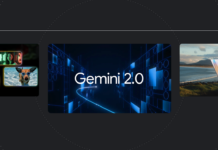The Crucial Role of Open-Source AI in Europe’s Technological Future
In recent years, the field of artificial intelligence (AI) has seen remarkable advancements, heralding a new era of technological innovation. AI has the potential to significantly enhance human productivity, accelerate scientific research, and contribute trillions of dollars to the global economy. However, as with any transformative technology, access to AI and its benefits are not evenly distributed across the globe. Some regions and organizations are better positioned to take advantage of these advancements than others.
In this context, open-source AI stands out as a key opportunity for European organizations to level the playing field. Open-source AI refers to AI models whose underlying data and algorithms, known as "weights," are made publicly available under a permissive license. This approach ensures that the power of AI is not concentrated in the hands of a few large corporations. Instead, it creates a more equitable environment, similar to how the internet democratized access to information.
The internet, the backbone of modern connectivity and communication, largely operates on open-source technologies. Leading tech companies, including giants like Google, Microsoft, and Amazon, rely on these technologies to build their platforms. The next wave of innovation and startups is expected to be driven by open-source AI, allowing developers to incorporate the latest advancements at minimal cost while maintaining control over their data. This democratization of AI could be a driving force for economic growth and scientific progress, ensuring that benefits are widely shared.
Meta, formerly known as Facebook, has been a strong proponent of open-source AI. The company has open-sourced several of its AI technologies, including its advanced Llama large language models. These models are already being utilized by public institutions and researchers to expedite medical research and preserve endangered languages. Europe, with its robust community of open-source developers, is uniquely positioned to harness this wave of open-source AI. However, the region’s fragmented regulatory environment poses significant challenges.
Europe’s regulatory structure is characterized by inconsistent implementation and overlapping regulations, which stifle innovation and hinder developers. Instead of providing clear guidelines on how companies should operate across the continent, the industry faces a maze of regulations that create uncertainty. Without urgent reforms, European businesses, academics, and researchers risk being left behind in the next wave of technological investment and economic growth.
Spotify, another European tech success story, underscores the importance of early investment in AI. The company’s personalized user experience, which has led to billions of discoveries of artists and creators worldwide, is a testament to the transformative power of AI. As the streaming industry looks to the future, open-source AI holds tremendous potential to further benefit artists and creators. A streamlined regulatory framework would not only accelerate the growth of open-source AI but also provide essential support to European developers and the broader creator ecosystem.
While regulating known harms is necessary, pre-emptive regulation of theoretical risks for emerging technologies like open-source AI could stifle innovation. Europe’s risk-averse regulatory approach could prevent the region from capitalizing on high-stakes opportunities that have the potential for significant rewards.
A prime example of regulatory complexity is the uneven application of the European Union’s General Data Protection Regulation (GDPR). This landmark directive was intended to harmonize data usage and flow across Europe. However, privacy regulators within the EU have struggled to agree on its implementation, leading to delays and uncertainty. For instance, Meta has been instructed to delay training its AI models on publicly shared content from Facebook and Instagram users. This is not due to any legal violations but because regulators have yet to reach a consensus on how to proceed. In the short term, this delay means that the most advanced AI models will not reflect the diverse knowledge, culture, and languages of Europe, depriving Europeans of access to cutting-edge AI products.
These concerns are not merely hypothetical. Due to the current regulatory uncertainty, Meta may be unable to release future models like Llama multimodal, which has the capability to understand images. This would mean that European organizations would miss out on the latest open-source technology, and European citizens would be left with AI solutions designed for other regions.
The harsh reality is that laws intended to enhance European sovereignty and competitiveness are often counterproductive. This issue is not confined to the tech industry; many European CEOs from various sectors cite the convoluted regulatory environment as a significant barrier to competitiveness.
To address these challenges, Europe must simplify and harmonize its regulations, leveraging the strengths of a unified yet diverse market. The growing disparity between homegrown European tech leaders and their counterparts in America and Asia highlights the need for a more conducive environment for innovation. Europe must make it easier to launch successful companies and retain its top talent. Currently, many of Europe’s brightest minds in AI are choosing to work outside the continent.
In summary, Europe requires a new regulatory approach characterized by clearer policies and more consistent enforcement. With the right regulatory framework, combined with ambitious goals and some of the world’s top AI talent, the EU has a genuine opportunity to lead the next generation of technological innovation.
Open-source AI can play a pivotal role in enabling European organizations to fully exploit this new technology by creating a level playing field. It is crucial that the EU does not impose limitations on the possibilities that are only beginning to be explored. While Spotify and Meta use AI in different ways, both companies agree that thoughtful, clear, and consistent regulation can foster competition and innovation while protecting individuals and granting them access to empowering new technologies.
As technology continues to evolve rapidly, Europe must act swiftly to seize this once-in-a-generation opportunity. Time is of the essence, and without prompt action, Europe risks falling further behind in the global technological race.
Mark Zuckerberg, the founder and CEO of Meta, and Daniel Ek, the founder and CEO of Spotify, originally published this perspective in The Economist. They emphasize the urgent need for Europe to embrace open-source AI to ensure its competitive edge in the rapidly evolving technological landscape.
For more Information, Refer to this article.


































